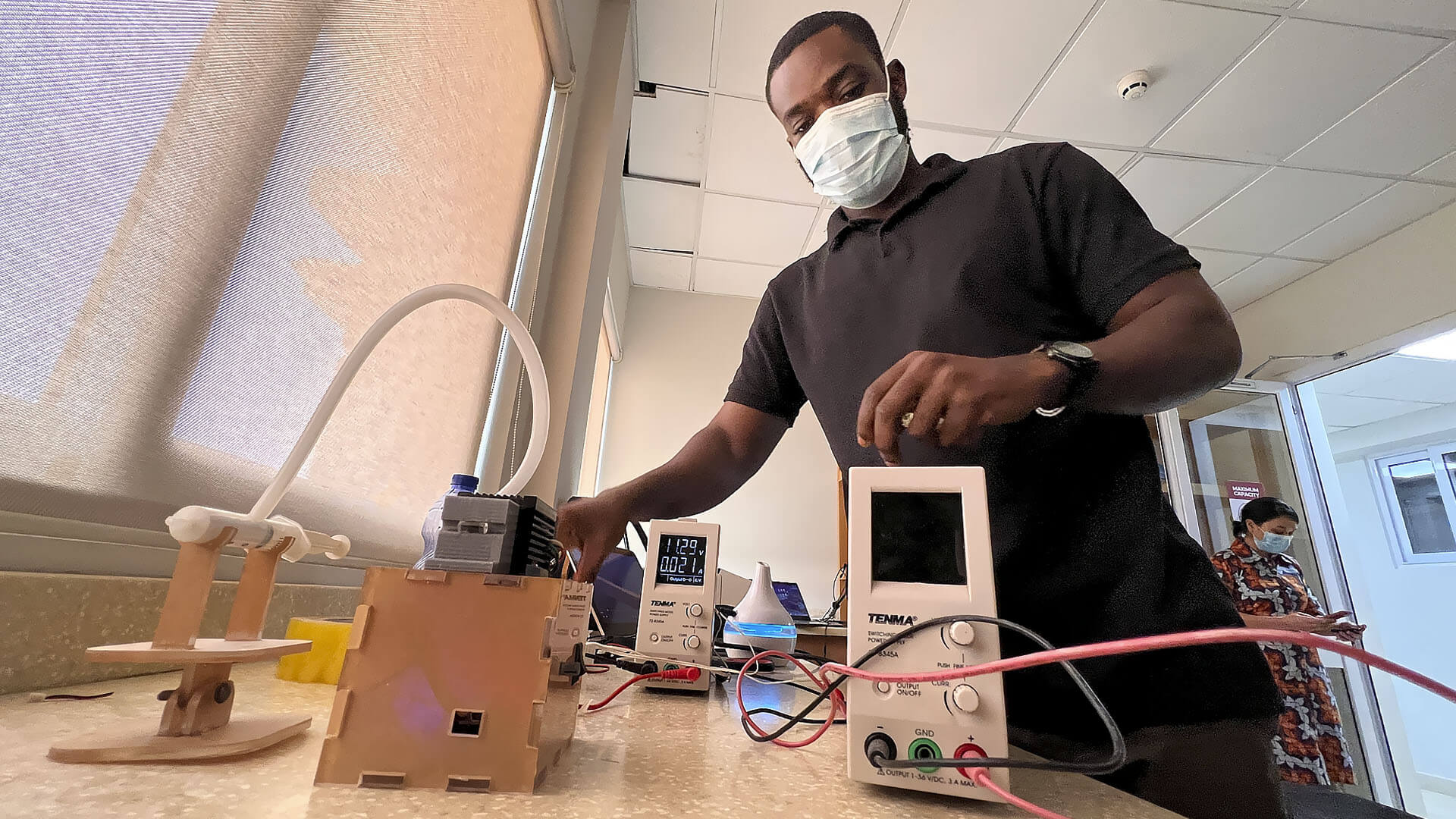It’s been approximately two years since Ashesi’s campus first moved online in March of 2020 due to the COVID-19 pandemic. In addition to identifying new ways of conducting teaching and learning, students and faculty also engaged in research that will support learning for years to come. The Face Shield Efficacy project is among these.
As it emerged that face shields could further limit the spread of COVID-19, the Mechanical Engineering faculty at Ashesi started to think through ways to manufacture these shields on campus for the university community. The goal of the efficacy project, led by Dr. Heather Beem, Dr. Danyuo Yiporo, Jeremiah Takyi ’20, and Fredrick Charway Acquah ’20, was to design an efficient face shield and a mechanism to test the shield’s efficacy.
Working with local tailors and leveraging manufacturing tools in Ashesi’s Engineering labs, the team built several prototypes for face shields, finally settling on a design after weeks of finetuning. The testing for the shield required a flow visualization to determine how it would handle respiratory droplets and particles generated during sneezing, coughing, or speech.
To do this test, the team designed and built a low-cost visualization setup using Particle Image Velocimetry (PIV). The PIV setup uses a camera, laser module, laser optics or lens, and a synchronizer, among others to help view particles as they flow in an area of study. The setup allowed the team to track particle magnitude and directions around the face shield and assisted in determining its effectiveness at stopping them from reaching a face. As the world works to move past COVID, this PIV system will be helpful for students conducting future experiments with flow visualization and fluid dynamics.

“This project is a notable example of practical learning,” says Dr. Beem. “Our former students built this system, putting into practice some of the key things they learned about circuits, programming, and fluid mechanics. Also, this project enables other students to learn practically about flow visualization and fluid mechanics, a standard system used globally for experiments.”
Share this story


